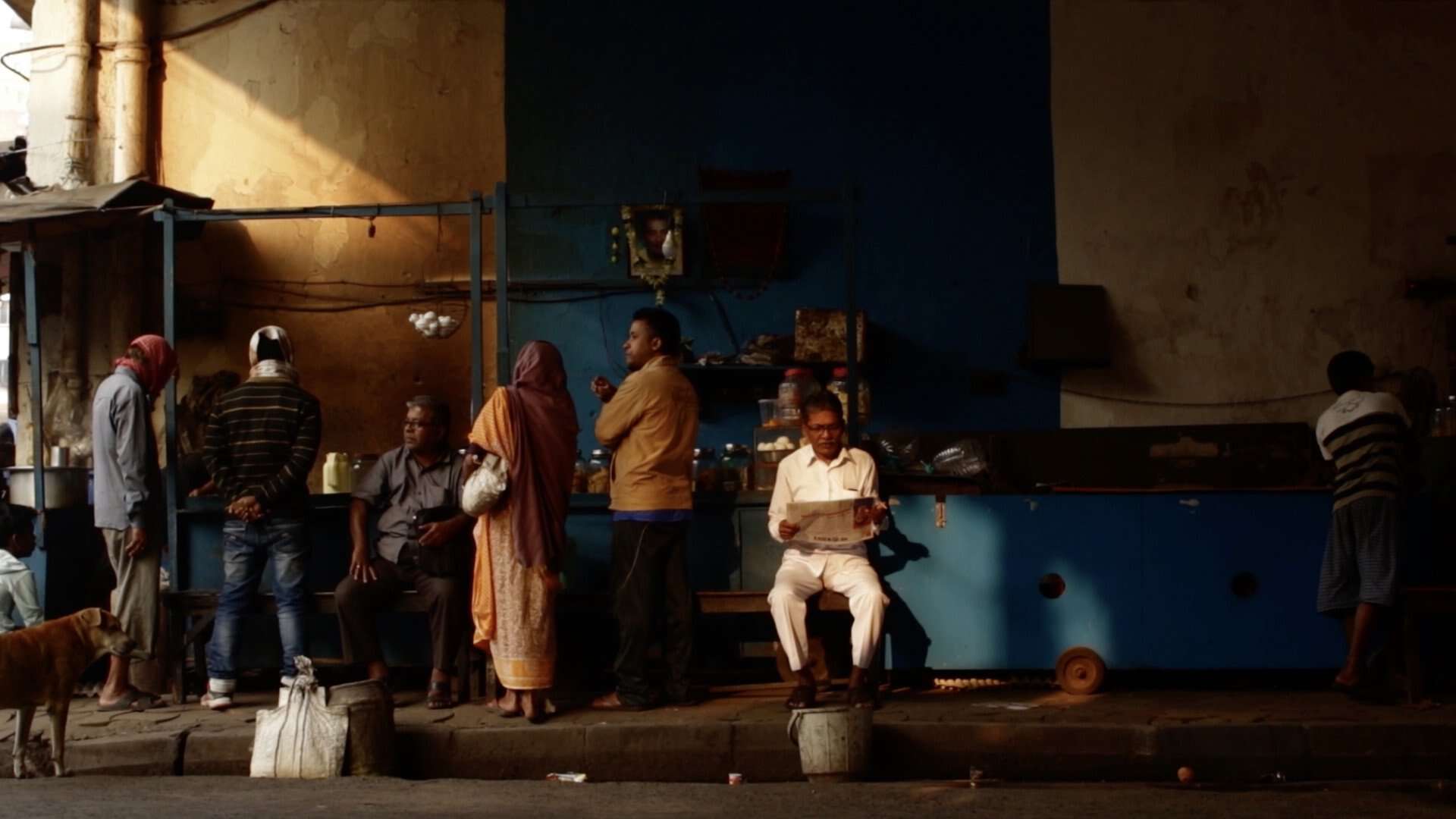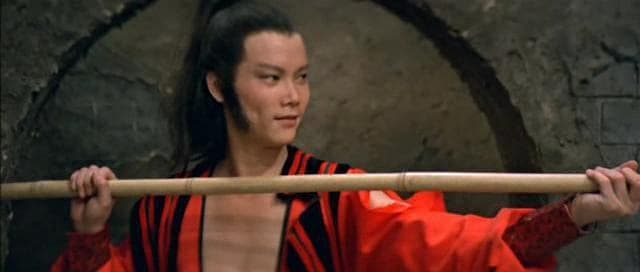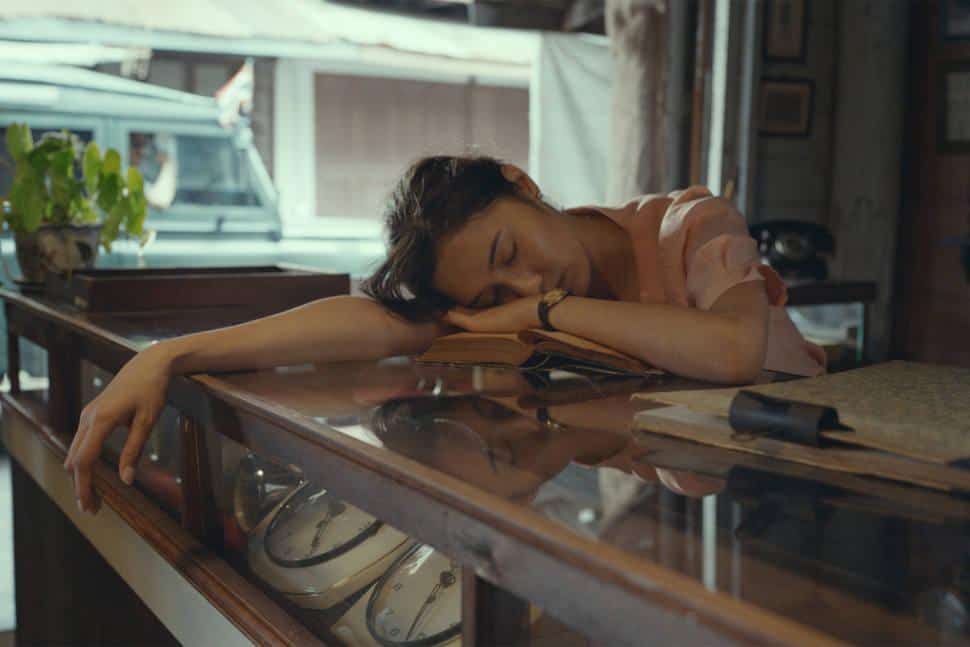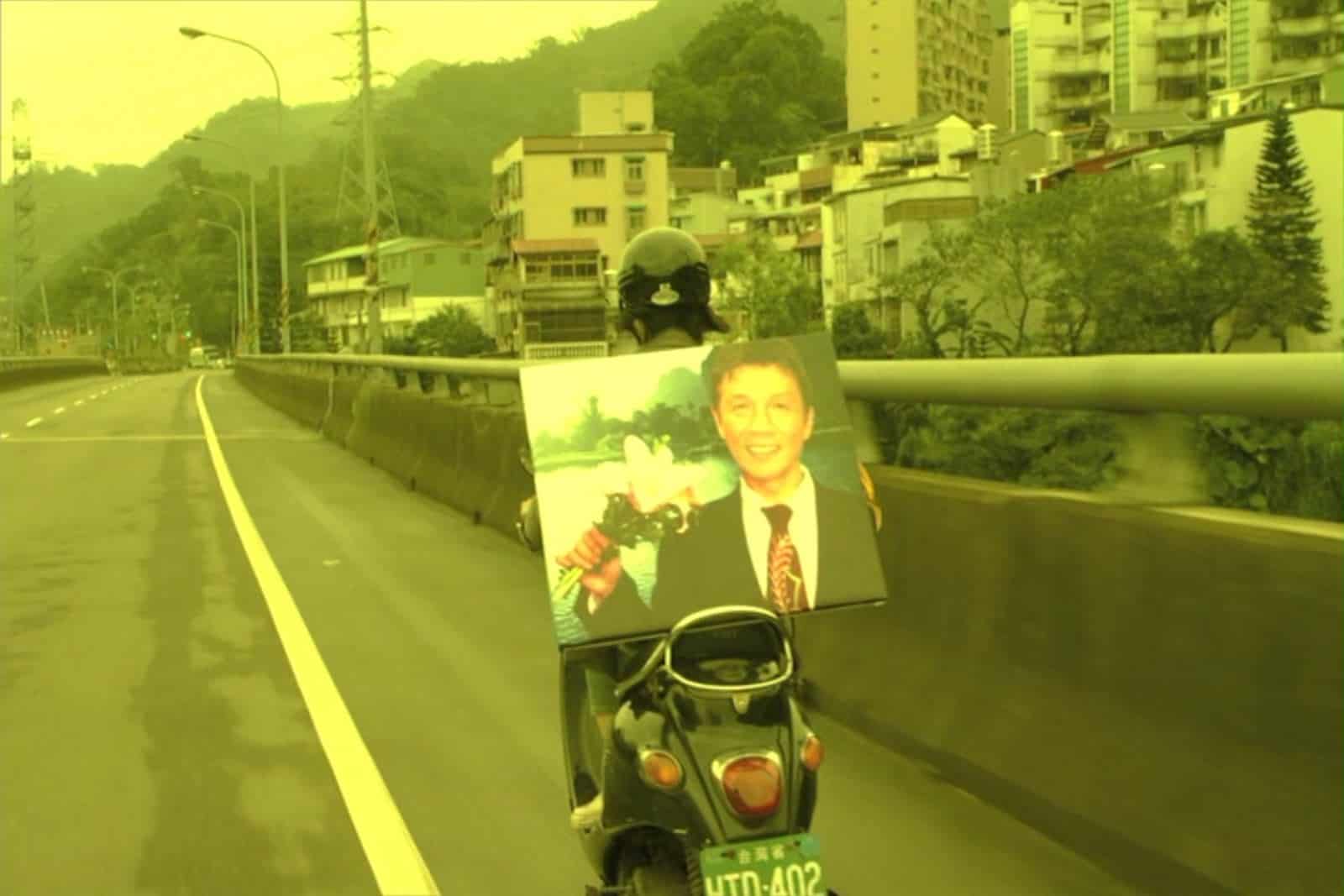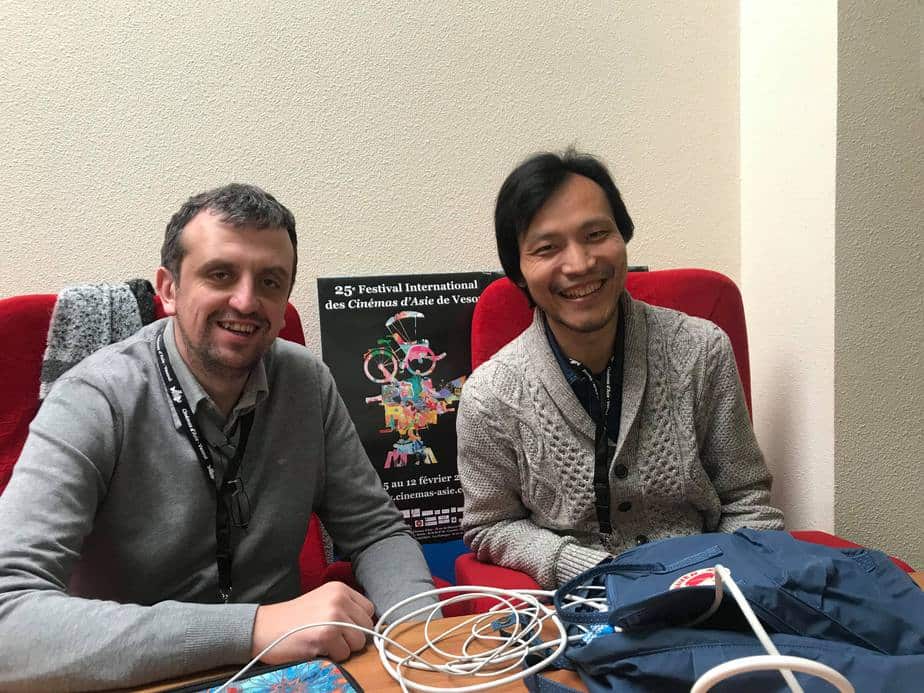Tarsem Singh Dhandwar typically does not employ subdued camerawork. He is more well-known for his visual Hollywood extravaganzas, like the exotic yarns woven into “The Fall” (2006), the Jennifer Lopez-starring, serial killer-thriller “The Cell” (2000), and more. However, Singh takes a totally different approach in “Dear Jassi,” his first feature filmed mostly in India. In this based-on-real-life Romeo and Juliet tale, he revives the lore recalling the terrible love – and loss – of Jaswinder “Jassi” Kaur Sidhu (Pavia Sidhu) and Sukhwinder Singh Mithu (Yugam Sood).
Earlier last year, “Dear Jassi” walked away with the Platform Prize at its world premiere at the Toronto International Film Festival. It also kicked off this year's Opening Night Gala at the Indian Film Festival of Los Angeles just this week. On the occasion of its IFFLA screening, we had the opportunity to speak to Singh over Zoom. We talked about murder, Iranian inspirations, and love at first sight.

This transcript has been edited and redacted for clarity.
This is your first feature film in eight years. What happened?
Tarsem Singh Dhandwar: Oh, nothing. It took me nine years between “The Cell” and “The Fall.” This just happens to be the pace that I work with, because I have a day job doing music videos and commercials. [“Dear Jassi” is something] I had been talking about for 23 years, and then I talked to somebody who gave me the “yes.” Suddenly, we were making the film in two months.
23 years to 2 months!
The [original event with Jaswinder Kaur Sidhu] happened 23 years ago. I told my brother [back then] that we should either make a movie about this now, or when two decades later, when we have some distance. And then suddenly, some people in India asked if I would be interested in doing a film there. I pitched this to them, and then in two seconds, I was put in touch with a writer. We clicked, we had a script, and we went from there.
How long did production take?
It should have been shorter. We were supposed to go to Canada, but two people [on the team] couldn't get their visa. So we had to change the two actors. We were in India for two months, and Vancouver for one week. We shot five days a week, cut during the weekends and evenings, and the film was done by the time we finished.
What originally drew you to the story?
The telephone conversation. I could understand the particular context in which Jassi's murder could be believable – not understandable, definitely not forgivable, but believable. I also knew what the real spaces of both Punjab and Canada look like, so I just went in to reverse engineer a world in which this form of conversation can be believable.
People tick [murders like in “Dear Jassi”] off as a religious problem. And I go, “No, it's a cultural problem.” It's just that English has a horrendous word for this whole situation, “honor killing.” There is just nothing honorable about killing your sister or child or anything, because they're marrying outside of the system. If you look at the word in Indian contexts, the implication of “honor” isn't in there at all.
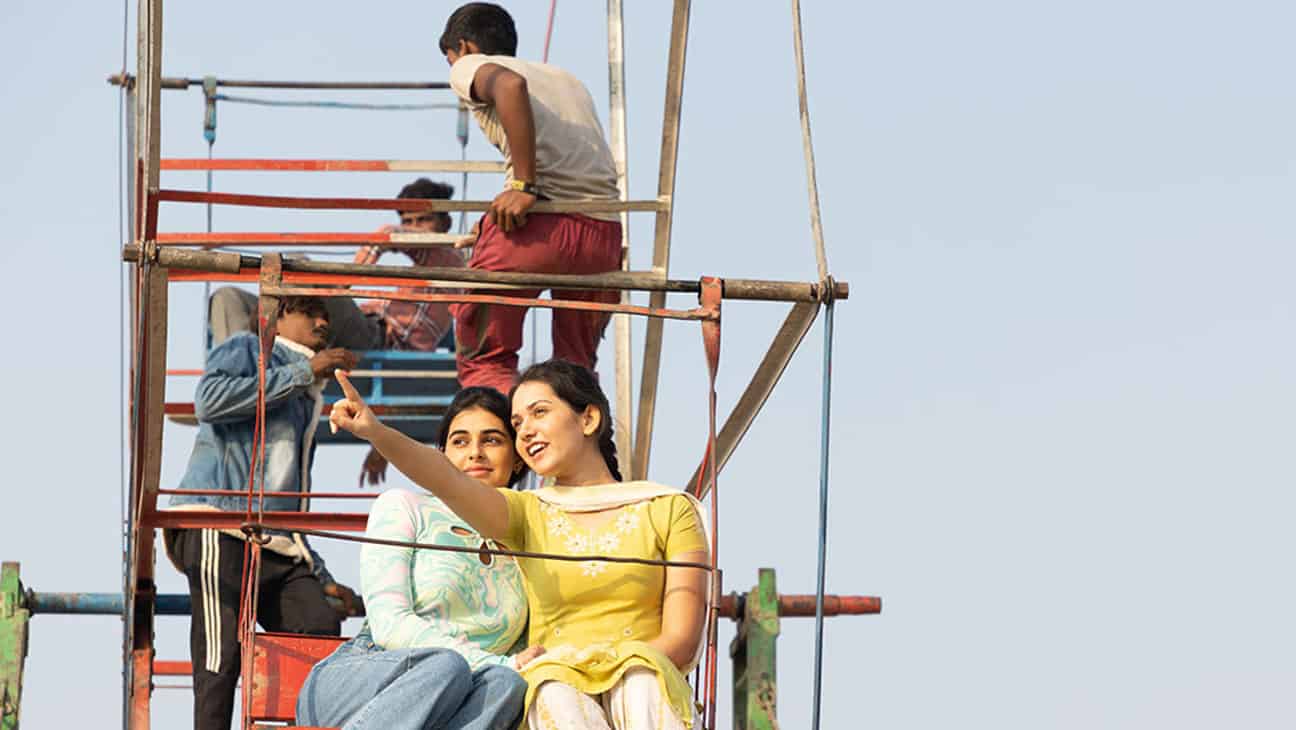
It's cool how the bards in the beginning and the end of the film bookend “Dear Jassi” with hearsay, just like we experience the murder through hearsay – through the telephone call.
The writer and I had a discussion about this. He thought that it would be more emotional if we showed what happened, and I said, “No, it's much more disturbing to not show it, because people can just put their own visual drama on what they hear. It can be different for everybody.”
My other stuff tends to be quite visual and fantastical. But for this one, I imagined a script to be written by Gaspar Noé or Michael Haneke, but gets directed by Shirin Neshat or Asghar Farhadi. French guys will deal with really dark subject matter and tell it flatly, whereas the Iranians will take something like a divorce and make it look like the end of the universe. When something really intimate or horrific is about to happen, you leave the scene.
Someone told me, “Oh, you're not making a Punjabi movie. You're making a movie in Punjabi,” and that stuck.
It's more cinematic, but it also feels more respectful to the real victims.
I got the permission to shoot the incident exactly where it happened, and I felt that it was completely wrong.
So how did you find your locations?
I usually send someone to send not photographs, but 360 pans. I make a small list, and then I go to see the locations. I used to take my Polaroid camera, 30 years ago; now, it's just my telephone.
Did you talk to the survivors at all in making the film?
No, we went after a reporter who had put the whole thing together. I thought that, if we went to either of the two sides, it would become their story, where they would want to cut parts out and add parts of their own. Instead, I wanted to take a journalist's view, so I got the rights from him.
You say journalism, but “Dear Jassi” feels very much like a drama.
That's the tragedy of it. 99% of the film is true. It is all very Shakespearean – like Mithu drugging the family to meet Jassi, and so on. It all came out so “Romeo and Juliet” that it made more sense to have a bard in the beginning.
There's also no background music in this film. I remember my writer saying, “But you know, that won't be dramatic. How will people know what to feel?” And I replied, “It's called acting.” When we did the read-through with the whole cast, I told them to stick to medium shots. If it's not working with the medium shot, either I've written it kind of wrong, or you all aren't doing it right. None of the dialogue is important. It just has to feel right.
So the bard is an add-on. What else is fictional?
Mithu's teacher is an added fictional element to compress time, but that's it. The bard is mainly to let you know that it's going to be a little harsher than what you think, to give you a head's up. The real story is more sad. [The real-life Mithu] spent five years in prison, not the family, because someone accused him of rape.
Have any of the real-life people seen the movie?
I don't know. When I screen “Dear Jassi” India in about two months, I will try to arrange it for them.
Switching gears: let's talk about your technique. I enjoyed how restrained the camerawork was.
Yeah, the only piece of violence that happens on-screen was accidental, when the kidnappers go off the road and come back with bloody swords. I tried to reshoot it three times, but it ended up being more and more dangerous. The stunt guys didn't understand that I wouldn't cover the violence explicitly. They wanted me to shoot in telephoto, to make things look more dramatic, whereas I wanted a subjective drama. But the first time, someone fell down; the second, the wardrobe got their shirts wrong; and then I just left it as is, and added CGI blood.
It's such a contrast from the hospital scene, and how Mithu (Yugam Sood) screams.
I think [Sood] was quite traumatized. I told all my team, if you're in a group, everyone has to bring their A-game on. It worked out, since it shortened the shooting time.
We've talked a lot about the family dynamics, but what really stood out for me are the depth of the friendships portrayed and modeled in the story.
Mithu had a very good group of people. They went through some harsh times. But I think the family dynamic is equally important. When you live in a real nutshell of a place, everything knows everything about everything.
It's the same in the Canadian joint family. Say that you have 10 girls. Jassi's mother is thinking about her two daughters and all her nieces as well; they all become her daughters in the same house. If one of [the girls] marries or does something that shames the rest, none of them may get married. So [with a situation like Jassi's,] then it becomes a question of, “How do we cut our losses? Do we just let this one go so the others can get married, or at least not marry way below their status?” If any one person breaks the mold, then everyone gets painted with the same brush.
I wish I could have gotten the real house, but they sold it. It was literally like a Motel 6. They had 19 bedrooms and 19 toilets.
Check the interview with the actors
Regardless, I found myself comparing the boundary between blood family and found family.
I always say, “Water is thicker than blood.” But now, with my son, I go like, “Oh my God, whatever he does, I have to take care of him.” He's ten years old and so innocently naive.
Surely, you'll let your son marry whoever he really loves.
Of course. All my family get arranged marriages, but I absolutely hated that system. I'd rather get it wrong ten times my way than get it right once your way. In many cases, people have no choice in arranged marriages. It used to always be through matrimonials, family, friends, and all that. In the West – I don't know. Do you [find people] in bars? Grindr? I don't know, but at least it's just your fault, not the family's.
Do you believe in true love?
I don't know what that means. (laughs) If [Jassi and Mithu] had gotten together, statistically, I don't know if they would have stayed together. But that isn't for us to go and say, or to tell them they can't get together. Let them work it out. It's their business. They're both adults.
The casting makes true love easy to believe, though.
The casting was perfect. To quote Groucho Marx, you have to let the audience guess and then double cross them. You have to make them fall in love with these two characters as you watch them fall in love.
And it's all just so beautiful, in an almost movie-esque way.
I wish I had not cast such beautiful people, but the original people are so beautiful. It's completely physical. The first time she sees him, bare-chested, playing this physical game. She's in love. The guy had to be beautiful. And then you Google them, and oh my God, he was stunning. She was stunning. They're just like that: Hollywood-esque, Bollywood-esque. They fell in love the moment they saw each other.
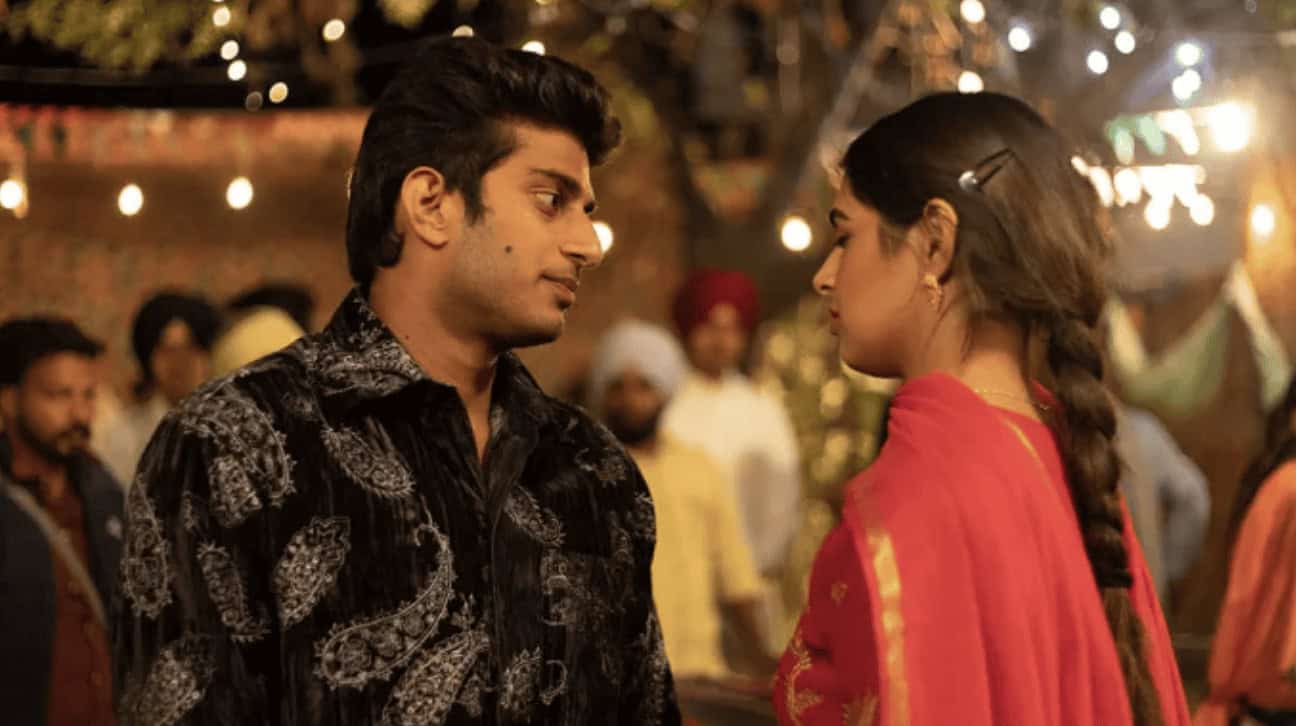
So maybe not true love, but love at first sight.
A lot of my white friends turned around and told me, “Oh hey, they kind of fall in love.” Someone at a festival has also told me that they fall in love too quickly. But no, it's a cultural thing. You feel all the hormones kicking in and the whole world has changed. I actually added scenes of them just exchanging glances, to make them fall in love slower. But it still wasn't enough in the West. My friends in the East, though, said, “Yeah, she definitely fell in love, and at first sight.”
I would ask you more but we're running out of time! Finally: what's next for you?
There's a TV series, “Sultana,” I am supposed to do now, but I am trying to push it to next year. There's a really brilliant script that we're hoping to make this year. I might do a movie in five weeks, or maybe I'll do the TV series first. I'm not sure. Suddenly it looks like I am either doing nothing or either too much, and it all just paces out like that.
I suppose that's like finding love too. Sometimes there's nothing, and sometimes it happens all at once.
Absolutely right. And when you're ready for it, it ain't going to happen. (laughs)



